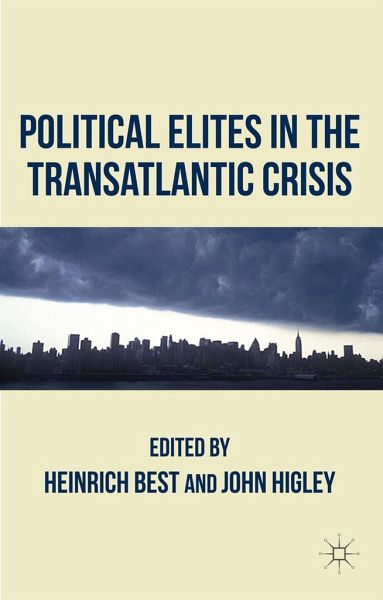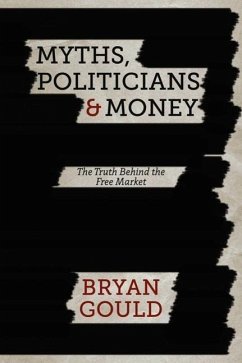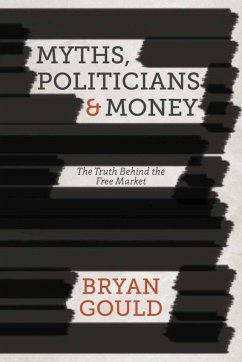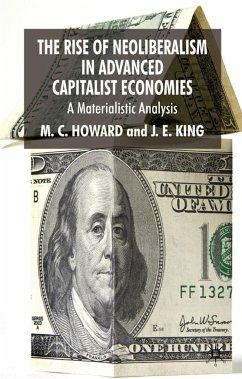
Broschiertes Buch
Political Elites in the Transatlantic Crisis
Versandkostenfrei!
Versandfertig in 6-10 Tagen

PAYBACK Punkte
19 °P sammeln!





Beliefs held by US and European elites about unregulated markets and a currency union without fiscal union led to a transatlantic crisis unmatched in severity since the Great Depression. Leading scholars of elites analyze how elites have responded to the crisis, are altered by it and what this 'hour of elites' means for democracy.
Maurizio Cotta, University of Siena, Italy G. William Domhoff, University of California, Santa Cruz, USA Fredrik Engelstad, University of Oslo, Norway Joseph V. Femia, University of Liverpool, UK Pavol Fri? Charles University, Czech Republic David Lane, University of Cambridge György Lengyel, Corvinus University, Hungary Alasdair Marshall, University of Southampton, UK Jan Pakulski the University of Tasmania, Australia So?a Szomolányi Comenius University, Slovakia
Produktdetails
- Verlag: Palgrave Macmillan / Palgrave Macmillan UK / Springer Palgrave Macmillan
- Artikelnr. des Verlages: 978-1-349-46663-4
- 2014 edition
- Seitenzahl: 188
- Erscheinungstermin: 1. Januar 2014
- Englisch
- Abmessung: 216mm x 140mm x 12mm
- Gewicht: 264g
- ISBN-13: 9781349466634
- ISBN-10: 1349466638
- Artikelnr.: 45075496
Herstellerkennzeichnung
Libri GmbH
Europaallee 1
36244 Bad Hersfeld
gpsr@libri.de
'A masterful portrait of how non-elected (and elected) elites have been pivotal actors in the 2008 financial crisis and its aftermath, bringing together a group of excellent analyses by leading scholars of the field.'
Antonio Costa Pinto, Institute of Social Sciences, University of Lisbon, Portugal
"While economists rushed to publish their explanations for the causes of the 2008 financial crisis, little has been written about its impact on political systems. This collection of essays by a distinguished panel of authors shows how elites struggled to shore up the existing system of Euro-Atlantic institutions. Globalization has its limits, and national political elites still have a role to play, but it is unclear whether they are capable of acting together to prevent future systemic crises.'
- Peter Rutland, Government Department, Wesleyan University, USA
Antonio Costa Pinto, Institute of Social Sciences, University of Lisbon, Portugal
"While economists rushed to publish their explanations for the causes of the 2008 financial crisis, little has been written about its impact on political systems. This collection of essays by a distinguished panel of authors shows how elites struggled to shore up the existing system of Euro-Atlantic institutions. Globalization has its limits, and national political elites still have a role to play, but it is unclear whether they are capable of acting together to prevent future systemic crises.'
- Peter Rutland, Government Department, Wesleyan University, USA
Für dieses Produkt wurde noch keine Bewertung abgegeben. Wir würden uns sehr freuen, wenn du die erste Bewertung schreibst!
Eine Bewertung schreiben
Eine Bewertung schreiben
Andere Kunden interessierten sich für











